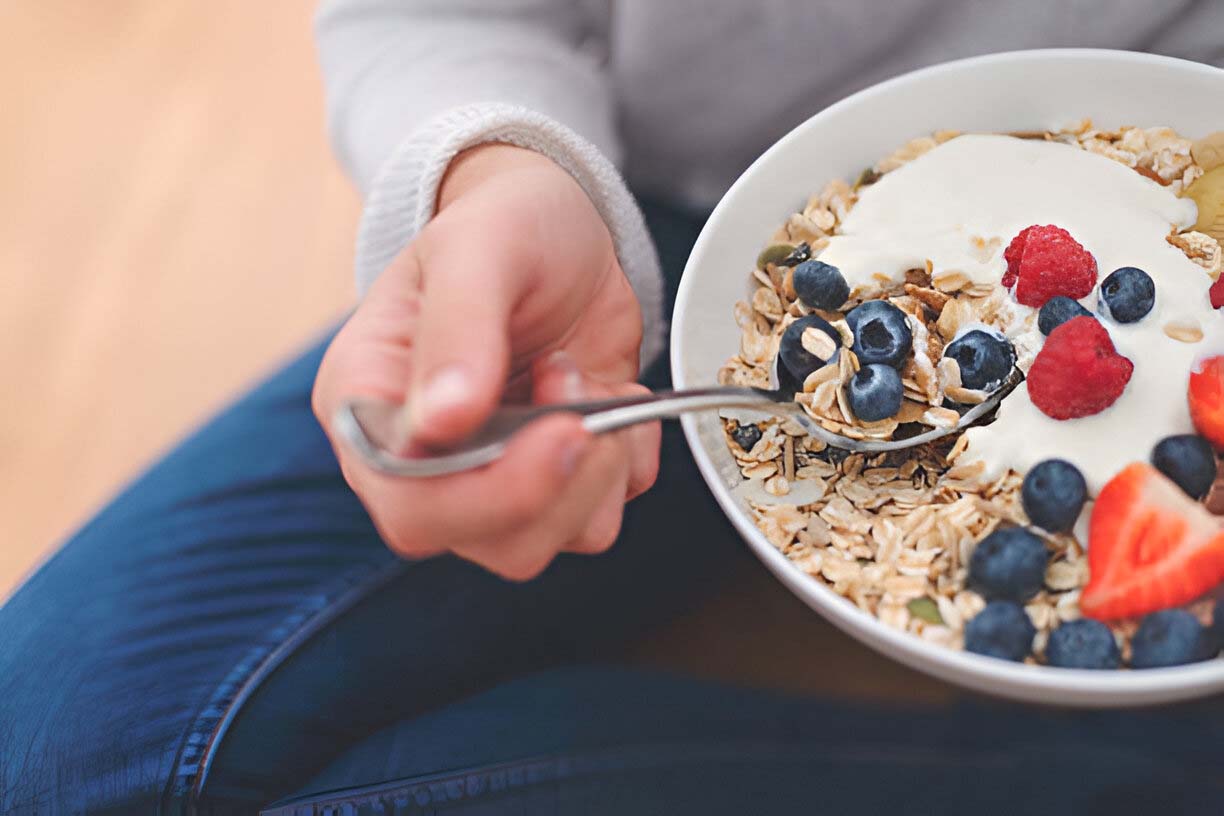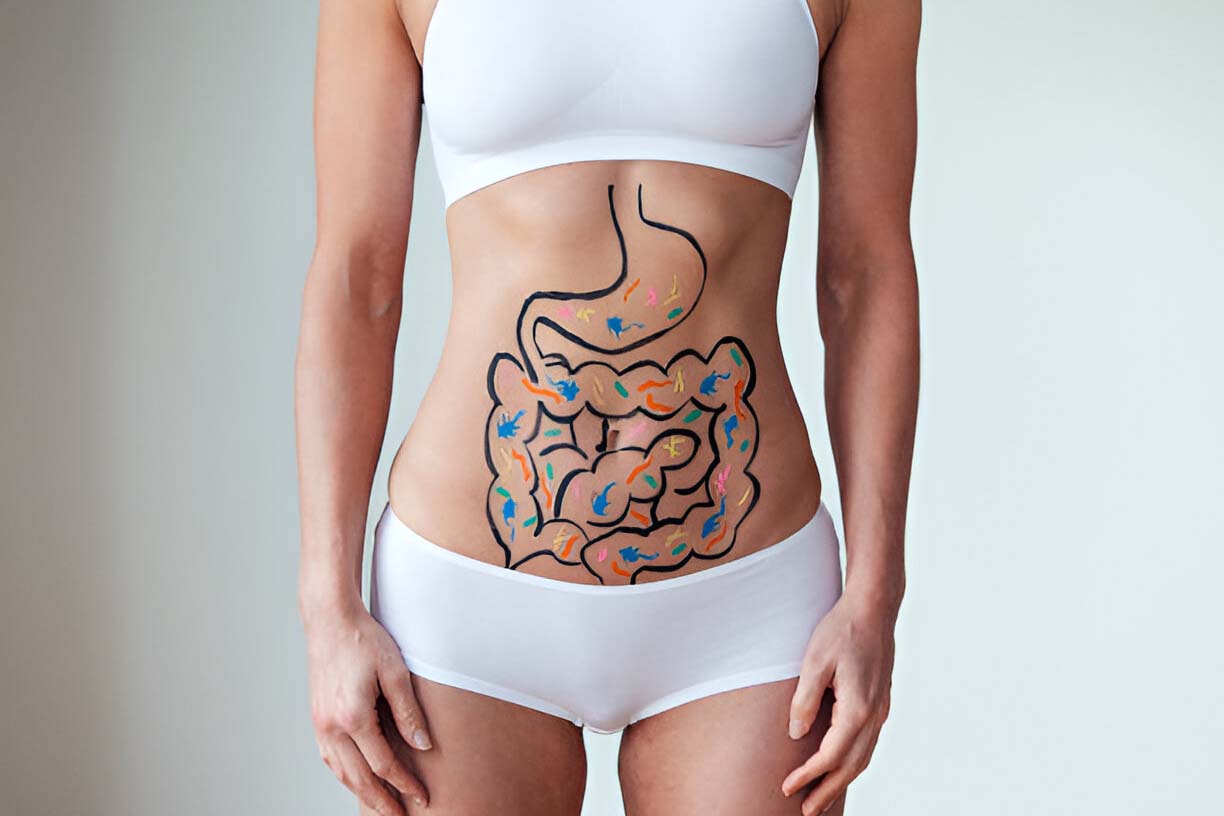Wellness Trends for 2025: A series of posts designed to uncover the most progressive concepts in wellness for the year ahead. Number Twelve: The Gut-Brain Axis.
In recent years, scientists and wellness experts alike have highlighted a fascinating and complex relationship that’s reshaping how we think about health: the gut-brain axis. This bidirectional communication network between our digestive system and brain has been shown to influence mood, cognition, and overall well-being, suggesting that our diet and gut health play a pivotal role in mental health. What’s emerging is an understanding that treating mental health might begin in the gut, and improving digestion could alleviate not just physical ailments but also emotional and cognitive issues.
This article explores the science behind the gut-brain axis, its impact on wellness, and practical strategies for fostering a healthy gut to support mental health.

What is the Gut-Brain Axis?
The gut-brain axis (GBA) is a complex, two-way communication network that connects the central nervous system (CNS), which includes the brain and spinal cord, with the enteric nervous system (ENS), or the network of nerves in the gastrointestinal tract. While these systems are far apart physically, they are closely linked through a dense web of neural, hormonal, and immune signals.
At the heart of this connection is the vagus nerve, one of the largest nerves in the body, which serves as a direct line between the brain and the digestive tract. The gut-brain axis enables the brain to send signals that affect digestion, and the gut, in turn, sends messages that influence brain function and behavior. This communication network is integral to maintaining homeostasis, or balance, within the body and helps regulate mood, stress response, and even immune function.
The Microbiome: The Gut’s Role in Brain Health
Central to the gut-brain axis is the microbiome, a diverse community of trillions of microorganisms, including bacteria, viruses, and fungi, that inhabit the digestive tract. This microbiome is not only essential for digestion but also influences mental and physical health in surprising ways. Scientists have found that the gut microbiome can impact brain health through the production of neurotransmitters, immune system modulation, and inflammation regulation.
– Neurotransmitter Production: Remarkably, the gut microbiome produces many of the same neurotransmitters that are found in the brain, including serotonin, dopamine, and gamma-aminobutyric acid (GABA). In fact, up to 90% of the body’s serotonin—a neurotransmitter involved in regulating mood and social behavior—is produced in the gut. These neurotransmitters travel along the gut-brain axis, potentially influencing mood, stress, and cognitive function.
– Immune System Interaction: Around 70% of the body’s immune cells reside in the gut. These cells play a role in regulating inflammation, which is increasingly recognized as a factor in mental health disorders such as depression and anxiety. A balanced microbiome supports immune function and helps prevent chronic inflammation, which is associated with cognitive and emotional issues.
– Metabolite Production: Gut bacteria also produce short-chain fatty acids (SCFAs) like butyrate, acetate, and propionate, which have been shown to benefit brain health by reducing inflammation and enhancing brain barrier integrity. SCFAs are involved in the production of energy for gut cells and contribute to overall gut integrity, helping prevent “leaky gut,” a condition that may disrupt the balance between gut and brain.
The Impact of the Gut-Brain Axis on Mental Health
Research on the gut-brain axis is shedding new light on how gut health may influence mental health conditions. Here are a few examples of how gut health can impact brain function:
Mood Disorders
Depression and anxiety are two of the most common mental health conditions linked to gut health. Studies show that individuals with depression often have a less diverse microbiome, with lower levels of beneficial bacteria. By restoring microbiome balance, it may be possible to improve mood and reduce symptoms of depression and anxiety. In fact, some studies have found that probiotics, often referred to as “good bacteria,” may reduce anxiety and improve mood by influencing gut health.
Cognitive Function and Focus
Emerging research suggests that gut health may influence cognitive functions like memory, focus, and decision-making. Some studies indicate that dysbiosis—an imbalance in the gut microbiome—may contribute to neurodegenerative diseases such as Alzheimer’s. By promoting a healthy gut, individuals may be able to support brain function and delay cognitive decline.
Stress Response
The gut-brain axis plays a critical role in regulating the body’s stress response. When the gut is out of balance, stress levels often increase, and high stress, in turn, can negatively impact gut health, creating a vicious cycle. A balanced microbiome can help reduce the body’s stress response, while chronic stress can lead to gut inflammation and disrupt microbiome diversity.
Sleep and Circadian Rhythms
Studies show that the gut microbiome also plays a role in regulating sleep and circadian rhythms. Disruptions in the microbiome may interfere with sleep patterns and impact the body’s ability to manage stress. By supporting gut health, individuals can potentially improve sleep quality and, in turn, mental clarity and emotional resilience.

Key Foods and Nutrients for a Healthy Gut-Brain Axis
The foods we eat play a fundamental role in shaping the gut microbiome and, by extension, our mental health. Here are some of the most beneficial foods and nutrients for supporting the gut-brain axis:
1. Fiber-Rich Foods
Fiber is essential for gut health because it feeds beneficial bacteria in the colon, promoting microbiome diversity. Vegetables, whole grains, and fruits are excellent sources of fiber, which helps produce SCFAs that reduce inflammation and support brain health. Foods like oats, beans, and apples contain prebiotic fibers that help beneficial bacteria thrive.
2. Probiotics and Fermented Foods
Probiotics, found in fermented foods such as yogurt, kefir, sauerkraut, and kimchi, help replenish and maintain healthy gut bacteria. Regularly consuming probiotic-rich foods can support a balanced microbiome, which in turn positively influences mental health. Studies have shown that certain strains of probiotics, such as Lactobacillus and Bifidobacterium, can reduce anxiety and improve mood.
3. Omega-3 Fatty Acids
Omega-3 fatty acids, found in fatty fish like salmon, as well as in chia seeds, flaxseeds, and walnuts, are anti-inflammatory fats that support brain health. Omega-3s have been shown to enhance mood and cognitive function and are associated with reduced symptoms of depression and anxiety.
4. Polyphenol-Rich Foods
Polyphenols are plant compounds with antioxidant properties that support gut health. Foods like berries, dark chocolate, green tea, and olive oil are rich in polyphenols, which help reduce inflammation and protect brain cells. Polyphenols also encourage the growth of beneficial gut bacteria, enhancing gut-brain communication.
5. Tryptophan-Rich Foods
Tryptophan is an amino acid involved in serotonin production. Foods high in tryptophan, such as turkey, eggs, nuts, and cheese, can support mood regulation by enhancing serotonin synthesis in the gut. Increasing tryptophan intake can have a positive impact on mood and stress management.

Lifestyle Practices to Support the Gut-Brain Axis
In addition to diet, certain lifestyle practices can enhance the health of the gut-brain axis. These practices are geared toward reducing stress, improving digestion, and supporting a balanced microbiome:
Manage Stress with Mindfulness and Relaxation
Chronic stress disrupts the gut microbiome and weakens the gut-brain connection. Practices like mindfulness meditation, yoga, and deep breathing exercises can help reduce stress and improve gut health by supporting the parasympathetic nervous system, which encourages relaxation and digestion.
Prioritize Sleep
Poor sleep quality can negatively impact gut health, as it disrupts circadian rhythms and immune function. Ensuring 7-9 hours of quality sleep each night can support both gut health and mental resilience, strengthening the gut-brain connection.
Engage in Regular Physical Activity
Exercise has been shown to positively impact the microbiome, increasing the diversity of beneficial gut bacteria. Regular physical activity can reduce inflammation, improve mood, and enhance cognitive function, all of which contribute to a balanced gut-brain axis.
Avoid Antibiotic Overuse
While antibiotics are sometimes necessary, overuse can harm the gut microbiome by killing beneficial bacteria. When antibiotics are needed, consider incorporating probiotics to help restore gut bacteria balance.
Stay Hydrated
Water supports digestion and helps maintain the mucosal lining of the gut, which is important for gut integrity. Proper hydration aids in nutrient absorption and helps flush toxins from the system, supporting both gut and brain health.
Future Directions in Gut-Brain Axis Research (continued)
Gut-Brain Medication Development
As researchers better understand the mechanisms behind the gut-brain connection, there may be new developments in medications or supplements that target gut health specifically to support mental well-being. By focusing on pathways that influence neurotransmitter production or inflammation, these therapies could offer alternative options for managing mental health conditions.
Microbiome Modulation for Cognitive Health
Studies are investigating how manipulating the gut microbiome could improve cognitive health, potentially delaying or mitigating neurodegenerative diseases such as Alzheimer’s. Future therapies might include precision probiotics or dietary recommendations designed to support long-term cognitive resilience through gut health.
Nourishing the Mind Through the Gut
The gut-brain axis underscores the profound connection between what we eat, how we live, and how we feel. As science continues to reveal the intricate relationship between the gut and brain, it’s clear that fostering a healthy microbiome is key to supporting not only physical health but also mental and emotional well-being. Embracing dietary choices rich in fiber, probiotics, and healthy fats, alongside lifestyle practices like mindfulness, sleep, and exercise, can enhance this vital connection, helping us feel more balanced and resilient in the face of life’s demands.
By understanding and supporting the gut-brain axis, we gain a holistic approach to wellness that taps into our body’s natural systems. In a world where stress and mental health concerns are on the rise, the gut-brain connection offers a promising, integrated path to health that begins right where digestion starts. As research progresses, this ancient yet emerging approach to well-being may become a cornerstone of how we care for both mind and body, enhancing quality of life through balanced, mindful nutrition and lifestyle choices.








